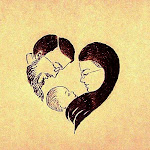The artistic temperament is a disease that afflicts amateurs. It is a disease which arises from men not having sufficient power of expression to utter and get rid of the element of art in their being... Artists of a large and wholesome vitality get rid of their art easily, as they breathe easily, or perspire easily. But in artists of less force, the thing becomes a pressure, and produces a definite pain, which is called the artistic temperament. Thus, very great artists are able to be ordinary men... There are many real tragedies of the artistic temperament, tragedies of vanity or violence or fear. But the great tragedy of the artistic temperament is that it cannot produce any art....
It need hardly be said that this is the real explanation of the thing which has puzzled so many dilettante critics, the problem of the extreme ordinariness of the behaviour of so many great geniuses in history. Their behaviour was so ordinary that it was not recorded; hence it was so ordinary that it seemed mysterious. Hence people say that Bacon wrote Shakespeare. The modern artistic temperament cannot understand how a man who could write such lyrics as Shakespeare wrote, could be as keen as Shakespeare was on business transactions in a little town in Warwickshire. The explanation is simple enough; it is that Shakespeare had a real lyrical impulse, wrote a real lyric, and so got rid of the impulse and went about his business. Being an artist did not prevent him from being an ordinary man, any more than being a sleeper at night or being a diner at dinner prevented him from being an ordinary man.
Perhaps it is over-bold of me to challenge such an esteemed man of letters as Chesterton, but I must take issue with the above.
Assuming that Chesterton is using a standard definition of "artist", his over-broad strokes leave no place for accepted masters such as Dürer, da Vinci, Cellini, or Michelangelo. Albrecht Dürer was subject to depression, Leonardo da Vinci struggled to complete any of his brilliant concepts, and Benvenuto Cellini, da Vinci, and Michelangelo were all almost certainly homosexual. Geniuses all, but not untroubled.
I suspect Mr. Matsui included this quote not because he is ignorant of art history or because, like Chesterton, he is over-fond of bold generalizations, but because he does not accept the aforementioned masters as such. I know that Mr. Matsui feels that art took a decidedly downward turn at time of the Renaissance*, and here I would agree with him. If, however, he agrees with Chesterton that true artists are untroubled, there I part company, for there is no doubt in my mind that Dürer, da Vinci, et al. were masters of their media, and that even the deeply psychologically troubled Van Gogh from our godless age was unparalleled in his genius.
It seems to me that what we call the "artistic temperament" is nothing more than a soul cracking under inner stresses, stresses formed by the challenge of the human psyche facing the divine - communicating beauty being one of the holiest of acts. It seems to me that without a way to understand the divine (ie. through traditional iconography, Eastern or Western), these stresses are inevitable in all but the most hardy souls. And artists, true artists, are by definition sensitive to their environments.
Perhaps the reason why we see so many shipwrecked artists from the time of the Renaissance to this is that humanism, under which delusional philosophy we still continue to labour, is manifestly a system without codified ways to appropriate and understand the divine.
- V.
* Unfortunately, a cursory search of Mr. Matsui's site was insufficient to provide me with sourcing at this time.



No comments:
Post a Comment